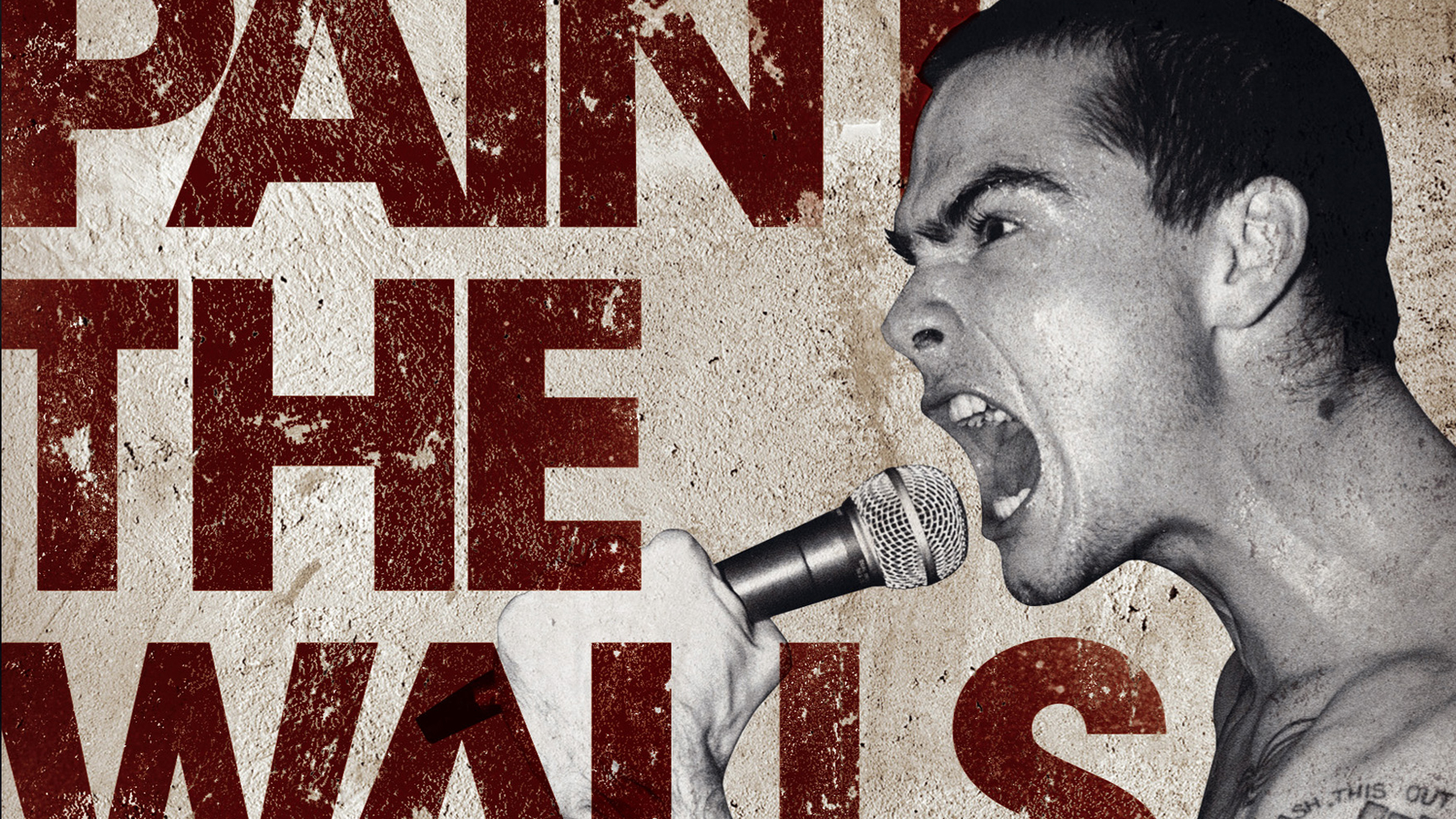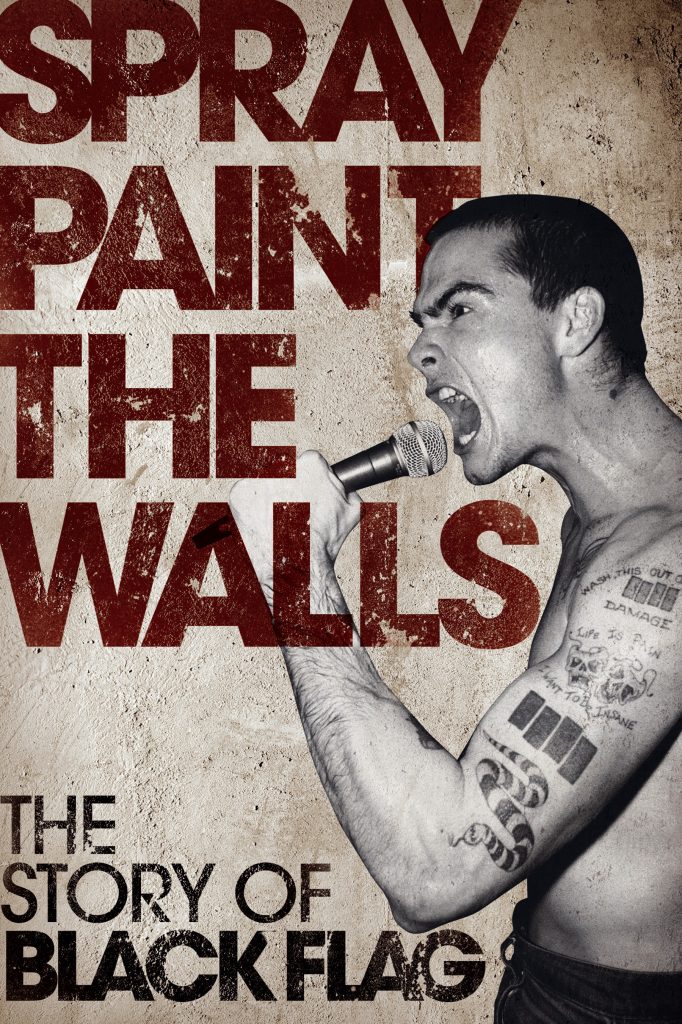By Simon Czerwinskyj
Political Media Review
April 2nd, 2013
The attempt to placate unruly youth inevitably molders into attempts to oppress unruly youth. Southern California in the late ’70s was all soft rock, cowboy fashion, and an extreme distaste for any blemishes in the sprawling whitewashed suburbs beyond Los Angeles. Hardcore punk was a perfectly placed kick to the teeth of all the authoritarian squares on the lookout for cultural aberrations to white out or erase. And Black Flag was the quintessential exemplar of everything the straight world feared; these disheveled, uncouth punkers lived by their own rules.
Stevie Chick has created a whirling dervish of a book (PM Press, 2011) in chronicling Black Flag’s rise and eventual flame out. Giving a rich background to the cultural and hereditary traits that informed the Flag members as individuals (vocalist Dez Cadena’s father was an accomplished jazz promoter, guitarist Greg Ginn came from eccentric, bohemian, and extremely frugal stock), Chick constructs a story that illustrates how these misfits really had no choice but to fall together into the vibrant mess that was Black Flag.
The linchpin of this tightly wound mess was Greg Ginn. An insular kid living in Hermosa Beach who had his own electronics company (Solid State Transmitters) and a real appetite for music. Upon entering UCLA, Ginn had access to the university’s record library, and he absorbed all the jazz, country, classical, and blues records available, eventually using this varied musical base to unleash unmitigated sonic hell by way of his guitar.
Chick’s detailed rendering of all the individuals who eventually joined the first incarnation of Black Flag smartly illustrates how these self-made men (and woman) would eventually create the archetype for hardcore. These individuals were out of their time, culturally, but always thoroughly American. Self-starters who refused to bend to the authorities and communities attempting to suppress and wipe out their single-minded free expression, Black Flag’s anarchy was fueled by — though the squares that despised them would deny it — an extremely American confidence and work ethic.
Keith Morris – Black Flag’s first vocalist — was an artistically inclined kid that saw the path laid out for him (taking over his father’s bait & tackle shop) as wholly unsatisfying. Gary McDaniel (aka Chuck Dukowski), the Flag’s quintessential bassist, was the resident philosopher and intellectual, never letting the media tag the nihilistic punk rock stereotype on him or the group. And Robo, the mysterious illegal immigrant, trying to make good with his newfound home. And of course Henry Rollins, Flag’s longest running and trademark vocalist, an independent freethinker if there ever was one. Raised with a military mind-set, Rollins work ethic was rivaled only by Ginn’s, who couldn’t understand why someone wouldn’t want to practice 8 hours a day.
Greg Ginn’s singular, one could even say obsessive or megalomaniacal, vision led to a real pioneer spirit. The regular joes that surrounded Black Flag in Hermosa Beach wanted them gone, erased, to the point that police surveillance and constant harassment eventually drove the band out of town. Now, what true, red-blooded American movement hasn’t been harassed by the powers that be? In a vague echo of COINTELPRO, the police would bust into concerts and try to shut them down, and then blame the resulting clashes on “punk rock violence”.
While the initial stages of the Black Flag story are brilliant flashes of light, it seems as though the final stages were a dull, flickering, single bulb. After carving out touring routes that hadn’t previously exist and amping up punk rock to create a template for hardcore, the group “matured.” Ginn’s laser focus on musical intricacy and perfection resulted in a disdain for personal relationships. As Rollins entered the band as their fourth vocalist, Ginn sent other Flag soldiers packing. Founding bassist Dukowski was vibed out of the band for supposedly not living up to Ginn’s perfectionism. Robo was stranded in Europe with immigration problems.
The line-up of Bill Stevenson on drums, Kira Roessler on bass, and remaining veterans Rollins and Ginn slogged it out for a few more years, till the rhythm section was also pushed out by Ginn’s finicky obsession. The band puttered to a stop with a replacement rhythm section, Rollins eventually being informed by phone that Black Flag was done.
Chick does a great job of conveying the wild energy and desperation that formed the cultural whirlwind of the mighty Black Flag. Their legacy is undeniable and the early recordings will always be incendiary, immediate, and revolutionary. Spray Paint The Walls is passionate and invested, a true fan’s testament to a ragtag band that refused to die in the face of the protestations and physical threats of straight society’s henchmen.







